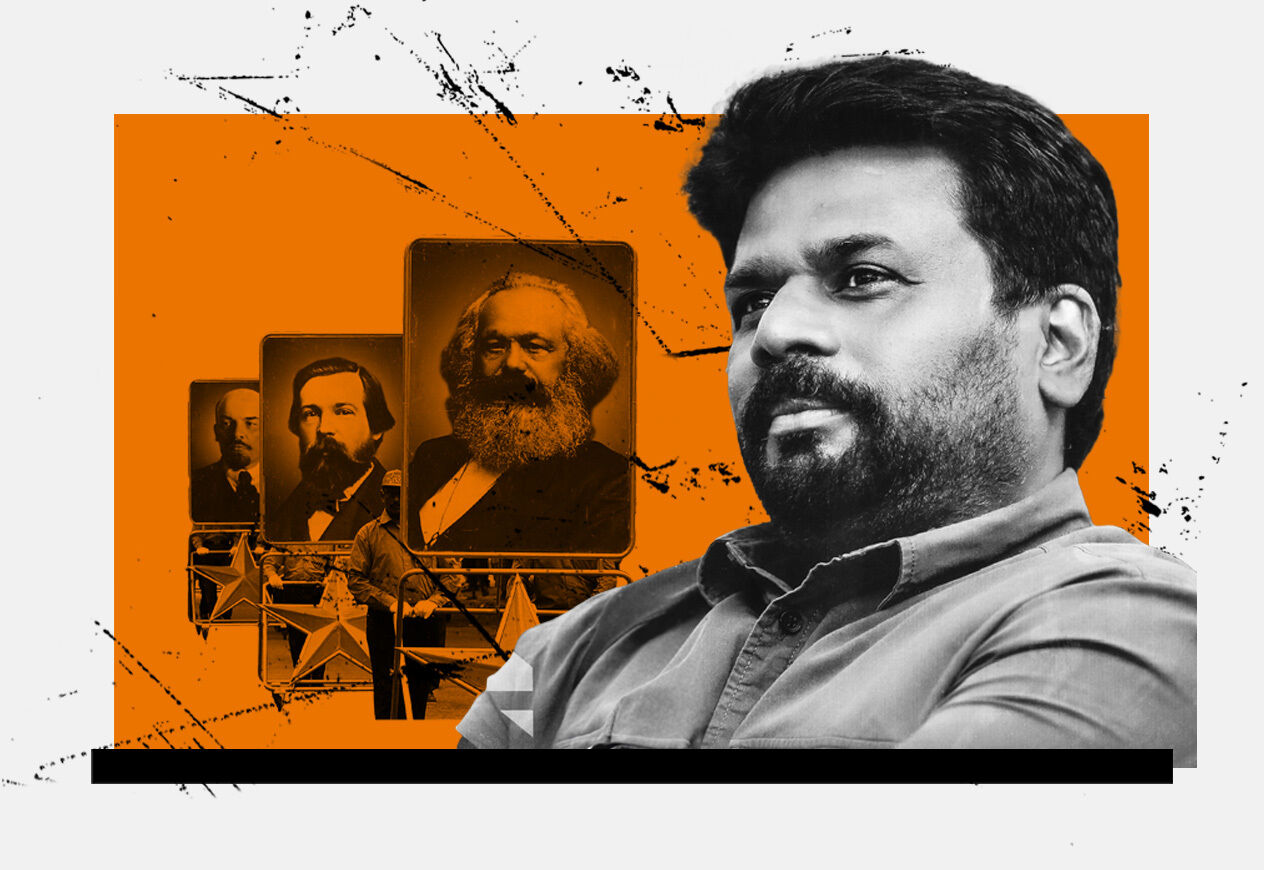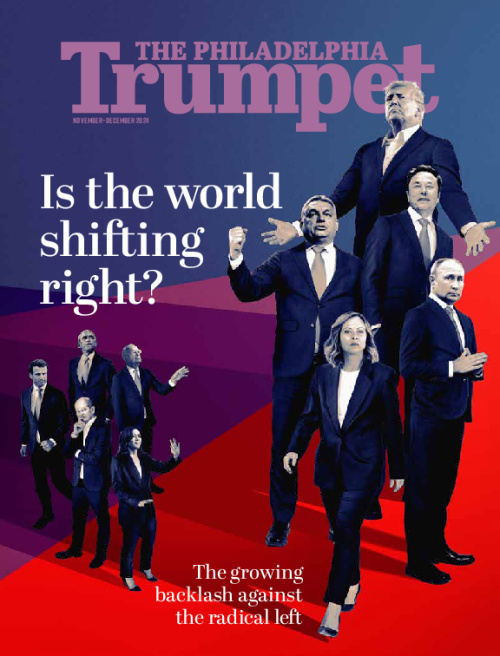A Good Reason to Elect a Marxist?

A Good Reason to Elect a Marxist?
In April 1971, around 10,000 wannabe Marxist revolutionaries attacked police stations across Sri Lanka. The People’s Liberation Front (jvp) insurrection took three weeks to put down, and their last outposts weren’t eliminated for months. Officially, 1,200 people died in the struggle, but many believe the total was in the thousands.
Seventeen years later, these same Marxists tried again. Better trained and organized, the jvp launched a guerrilla-style insurgency. This one took over two years to suppress, and the fighting was far deadlier, killing tens of thousands.
Now, one of these twice-defeated Marxists is president of Sri Lanka. He didn’t take office through a third uprising. Instead, through free and fair elections, Sri Lankans voted him in.
How can a Marxist group go, in a single generation, from starting a war that killed tens of thousands of their own people to gaining majority support? The answer is that, compared to the incumbent leadership, the Marxists looked like an attractive alternative.
Mahinda Rajapaksa first became president in 2005. His rule seemed to start well as he ended the country’s lengthy civil war, enabling the economy to grow substantially—more than 8 percent annually. In 2015, the World Bank called it “a development success story.”
But the Rajapaksa family drove the country into the ground for their own gain. Mahinda appointed his family members to key posts. At the height of his power, 40 members of his extended family held important (and lucrative) government jobs. And they used that power to sell their country to China.
They awarded development plans to China, taking out loans for unnecessary vanity projects, including the Mahinda Rajapaksa International Cricket Stadium in Mahinda’s home town of Hambantota and the nearby Mattala Rajapaksa International Airport, which has been called “the world’s emptiest airport.” China lent Sri Lanka around $1 billion to build a new port in Hambantota. When Sri Lanka could no longer pay back the loans, China took it over on a 99-year lease.
Many large businesses in Sri Lanka are state-owned. The Rajapaksas used their control of these businesses to sign big contracts with Chinese-owned firms. These firms funneled some of that cash back to the Rajapaksas. In 2018, the New York Times reported that millions of dollars flowed directly from Chinese port construction funds to the 2015 Rajapaksa reelection campaign. At the same time, China was funding 70 percent of the nation’s infrastructure products.
This corruption broke the country. Unable to pay the many debts, the country began printing money. Inflation hit 70 percent. Even then, the country couldn’t pay, and on May 20, 2022, this would-be “success story” defaulted on its debt for the first time in history.
With no one willing to lend it money, and not much to sell, Sri Lanka ran out of foreign currency. Without cash, it couldn’t pay for oil. Armed guards patrolled petrol stations as thousands queued for their daily ration of four gallons of fuel. Waiting eight hours in the hot sun for a tiny amount of fuel, many people died. To combat rolling blackouts, many Sri Lankan businesses used backup generators, which consumed more precious fuel.
The Rajapaksas turned to quack remedies. To hold on to precious foreign currency, they restricted the importation of fertilizer. Crop yields plummeted. Farmers lacked the fuel to transport what did grow to market. The nation starved.
This pushed the populace past the breaking point. In July 2022, protesters stormed the residences of the president and prime minister. The president, Gotabaya Rajapaksa, fled the country.
But beyond that, few top leaders changed. Prime Minister Ranil Wickremensignhe moved homes and became president. Although a political opponent of the Rajapaksas, he is believed to have shielded them from prosecution when he was last in office, from 2015 to 2019. After Wickremensignhe took over, Gotabaya Rajapaksa returned to live in a government-funded, government-secured house.
In elections this year, voters firmly rejected Wickremensignhe. Another main candidate was Sajith Premadasa, from the center-right United People’s Power. But Premadasa is the son of another former Sri Lankan president, and Sri Lankans are fed up with political dynasties.
Now Anura Kumara Dissanayake, the Marxist revolutionary, is president. He has toned down his Marxist rhetoric, saying he now supports a free-market economy and tariff-free trade as an engine of economic growth. He is from an ordinary family and presents himself as a down-to-earth friend of the poor and enemy of the corrupt. He is the change many Sri Lankans believe in. Yet he has never renounced his earlier beliefs. His party’s red flag retains the hammer and sickle. Dissanayake has defended the Communist dictatorship of North Korea. Most of his policies are standard fare for democratic socialists: more taxes on the rich, more welfare for the poor, and more power for the government to make it happen.
In a country where so many people got their riches through corruption, this is an appealing message. But it will not work.
Dissanayake might prove to be less corrupt than previous governments, and might even improve everyday life somewhat, but a socialist system won’t bring peace and prosperity to Sri Lankans. Dissanayake’s Marxists have links to China, just as the Rajapaksas did. China has already offered more lending for infrastructure programs since Dissanayake took office. It’s possible this new president will only bring his nation deeper into China’s debt trap.
These developments are a microcosm of human government throughout our history. We careen from one flawed government to another, bouncing between extremes in search of someone who will fix the previous leader’s shortcomings. Occasionally, we find a good one who can remedy a few problems and injustices. But eventually even he is forced from office or dies.
So we continue putting our faith in a flawed source: man. The truth is, we don’t know how to manage a country effectively, and we cannot be trusted to regulate ourselves. Like all human beings, we lack the capacity to rule ourselves effectively and always have.
This is why it is a law of history that the more power a man receives, the more temptation he has for corruption. Few countries have leadership as terrible as Sri Lanka, but all will soon be brought to ruin. This is the only way we will learn to stop looking to man for the solution and realize the lesson that thousands of governments have been teaching for thousands of years: Only God can rule us the way we need.
